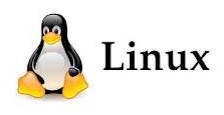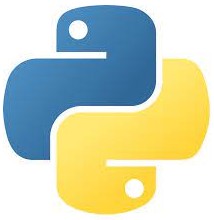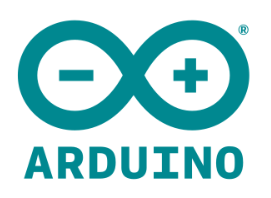Processing of personal data
Informative report in accordance with article 13 del D.lgs. n. 196/2003, visitors of the website: www.theremino.com and users of the services offered by the same, starting at the URL address: www.theremino.com, with the exclusion of external links.
-
No personal data of users are acquired by the website.
-
We do not use cookies to store personal information.
-
We do not use cookies, or other systems for tracking and/or user profiling.
-
The provision of information through the forms provided is free and spontaneous, and failure to send does not imply any difference in the treatment of messages.
GDPR
The site theremino is GDPR compliant n. 679/2016. That is the new European regulation concerning the protection of personal data, into force on 25 May 2018.
The only cookies on the site are “technical cookies” WordPress and PayPal. These cookies are essential to the functioning of the mechanisms of the site, You cannot delete them and are not intended to collect user data.
Donations through PayPal
In the case of donations through PayPal, We do not collect user's details. Information is exchanged directly between payment processors, use of personal information is governed by their privacy policy, that can be displayed on:
https://www.paypal.com/webapps/mpp/ua/privacy-full
Data protection officer
This site does not collect user data, Why hasn't an RDP (Data protection officer), as expected from GDPR. For inquiries or complaints please contact the owner of the site:
Ennio Bertrand
Via Giulia di Barolo 48
10124 Turin
enniobertrand@gmail.com
Cyber Resilience Act
Someone said that the approval of the “Cyber Resilience Act” will lead to the end of the system theremino, but in reality it is exactly the opposite. We are among the few who will remain completely safe from Legal and economic risks arising from the new law.
Our forward-thinking choice not to participate in commercial projects and not to use official repositories such as GitHub is paying off.. The future difficulties facing all partially commercial Open Source systems, starting from Arduino, Linux and Python show that we have chosen the right path.
 The system theremino has always avoided with the utmost care any form of merchandising, does not accept sponsorships, does not promote products, does not raise funds, does not organize events, does not monetize services, does not collect personal data and does not sell anything.
The system theremino has always avoided with the utmost care any form of merchandising, does not accept sponsorships, does not promote products, does not raise funds, does not organize events, does not monetize services, does not collect personal data and does not sell anything.
Therefore according to the “Cyber Resilience Act”, that for simplicity we will define “CRA”, our system is purely: “Free and open-source software developed or provided outside of a commercial activity“.
Consult the CRA articles in the last part of this chapter, you can see that our system can in no way fall within what the CRA defines “Business” So what “does not fall within the scope of the regulation”.


 Other software platforms that have a sponsorship program, monetize services, raise funds and organize coding courses and events, instead, they will have to take into account the CRA and adapt as far as possible.
Other software platforms that have a sponsorship program, monetize services, raise funds and organize coding courses and events, instead, they will have to take into account the CRA and adapt as far as possible.
The CRA could greatly damage Arduino that sells products and services, but also Linux which is the operating system of a large number of commercial products, and also the Python Fundraising Software Foundation, organizes events and coding courses and has a sponsorship program.
Arduino without Open Source libraries would become very difficult to program, Python could no longer provide downloadable packages with “pip install” and Linux would become unusable since it would no longer be able to install the packages essential for its operation with “sudo apt-get”.
If the current text of the CRA will not be changed, also numerous “Repository” dedicated to open source, including for example GitHub, GitLab and StackOverFlow, as well as all programmers who write software on platforms who advertise products, do merchandising and organize events and courses for a fee, Example 1, Example 2, will risk legally and economically, with criminal liability and fines that can reach 15 million euro.
But, as all programmers know, Writing perfect software is virtually impossible, So for many of them the only option would be to stop writing free software and work only in certified environments.. So what, being able to offload all responsibility on bureaucracy, They would end up producing even worse software.
This could lead to the end of innovation and cause significant damage to the European software industry.. In addition, Eastern European countries, like India and China, could benefit from the situation at Europe's expense.
Cyber Resilience Act Documentation
The Cyber Resilience Act is a proposal of the European Commission that aims to improve cybersecurity for connected devices and services.
The intentions are very good but in practice it could lead to terrible results. Open Source beta tests would be effectively prevented or limited, and the net result would be to worsen security, not improve it..
For those who make mistakes then would come terrible penalties, but in the meantime the omelette would be made, Open Source would be crippled and Europe would lose its most prolific programming base.
To learn more about these topics, listen to the following videos by Moreno Razzoli and Matteo Flora:
CRA articles on Open Source
Premise 10: “Free and open-source software developed or provided outside a commercial activity should not fall within the scope of this Regulation. This applies in particular to software, including source code and modified versions, which is shared openly and freely accessible, usable, modifiable and redistributable.
“In the context of software, A business might be characterized not only by charging a price for a product, but also from the charge for technical assistance services, from the provision of a software platform through which the manufacturer monetizes other services, or the use of personal data for reasons other than the exclusive improvement of security, software compatibility or interoperability.”
Article 16: "UA natural or legal person, other than the manufacturer, by the importer or distributor, who makes a substantial change to the product with digital elements is considered a manufacturer for the purposes of this Regulation”.
New draft of March 2023: "PTo maintain the innovative drive of open software, Developers are not bound by the regulation if they do not receive any economic return for their projects. On the contrary, Open source software provided in the context of a business activity is included in the provisions of the law.”
You can read the full text on this site: https://www.european-cyber-resilience-act.com
Creative Commons License
Hardware, firmware and software of the main components of the system Theremino are available in Open Source, for the purpose of study, under the Creative Commons license. For details please use the button (CC) or the link.
 Theremino-System is licensed under Creative Commons License
Theremino-System is licensed under Creative Commons License
All information on this website: images, wiring diagrams, instructions, software and installation plans, can be used freely, (no restrictions), even with amendments and also for commercial purposes.
However, if you plan to use the name Theremino, You must comply with the technical compatibility and guidelines of respect for life and the environment. The Theremino Group reserves the right to decide, so before using the name Theremino contact us.
More information here: www.theremino.com/contacts/environmental-protection
CE and RoHS certifications read here: www.theremino.com/contacts/certifications
Software, firmware and documentation available in Open Source
- Complete information about the communication protocol.
- Sample programs to communicate with the slots in C++, CSharp and VbNet with sources.
- Programs on your PC with complete sources and software projects and users can.
- Firmware to use as an example that can be edited by users.
System modules and adapters available in Open Hardware
- Hardware, circuit solutions and firmware modules.
- Complete wiring diagrams, lists of components and vendor information.
- Printed circuit board projects and Spice simulations.
Rules for donations
Circular No 3, of 22 January 2008 (Link 1), in paragraph 2 (Objective scope of application) expressly, the gift tax, does not apply to those of low value (Article 783 of the civil code): accordingly, You can put in your site Donate button, without being held, as long as the donations remain small, any tax compliance.
This is only valid if the donations, are donations properly so called, that is, if are optional, and if it is not secured (and even suggested), a minimum amount. In addition, donations should not be, a necessary condition to access content, or services offered on the site (or even a part of them). That is, there should be no discrimination, among the visitors who donate, and those that don't.
If this is not the case, the "donations" they would lose the characteristic of liberality, turn into payments and would become, ultimately, just a gimmick to hide a real business (that requires a different, and more onerous, framing), which can lead to heavy fines.
QUESTION: How to apply the concept of low value to the annual total of donations received? That is, if recessed 1000 euro of donations per year, don't declare anything but recessed 10.000 Mila I must declare them?
REPLY: In rules, referring to the single donation, and the number of donations, You can receive in a year, or the total amount. For example,: 1000 donations from 10 euro each, are treated individually, as donations of low value and the total 10000 Euro is not relevant. This according to a literal application of the standard.
But we must say, that such a situation would not be very realistic and that, If donations become “too many”, a tax auditor might get suspicious, and to think that behind those donations, There are fees for some commercial or, worse, illegal (recycling, etc…).
Disclaimer (Disclaimer)
All of these pages is totally non-profit. There is going to violate copyrights or to offend, so if this should happen please e-mail us and we will immediately make corrections.
All projects have been carried out and we have tested, but basic knowledge of electronics is assumed and the ability to resolve small practical problems. Our projects are designed primarily for the DIY and candid realizations, but above all to allow you to experience and express their creativity.
The authors who write on this site are not responsible for any problems or damages arising out of your use or misuse of the information published.
This site is not a news organization, as it is updated without any periodicity. It can not therefore be considered an editorial product, under Law No. 62 of 7.03.2001. Comments deemed offensive, Advertising (spam), racist, or that contain personal data in accordance with the compliance of Privacy, They are deleted as soon as possible. If you accidentally escapes us some comments please email us immediately and we will eliminate. Some texts or images in this web site are taken from the internet and, therefore, considered in the public domain; if their publication violated any copyrights, send us an email and we will immediately make the necessary corrections. The authors of this site are not responsible for the sites through links, the content of which may be subject to variation over time.
Basic principle
The only purpose of this site is the sharing of knowledge, in accordance with the principles of article 21 the Italian Constitution.
